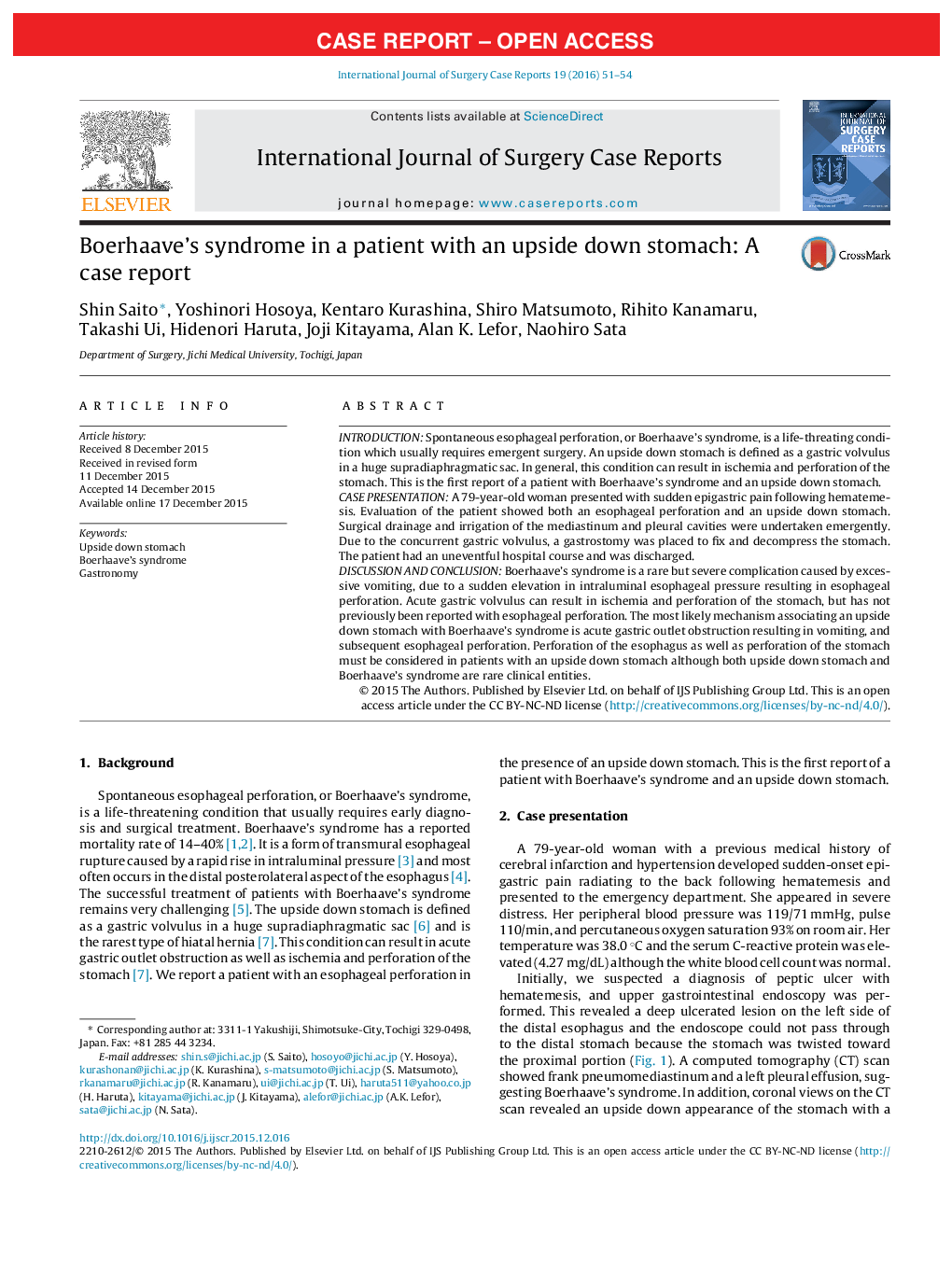| Article ID | Journal | Published Year | Pages | File Type |
|---|---|---|---|---|
| 4288725 | International Journal of Surgery Case Reports | 2016 | 4 Pages |
•Upside down stomach and Boerhaave’s syndrome are rare clinical entities.•Gastric volvulus with a large supradiaphragmatic sac is referred to as an upside down stomach, and can result in esophageal as well as gastric perforations.•This is the first report of a patient with Boerhaaves’s syndrome resulting from an upside down stomach.
IntroductionSpontaneous esophageal perforation, or Boerhaave’s syndrome, is a life-threating condition which usually requires emergent surgery. An upside down stomach is defined as a gastric volvulus in a huge supradiaphragmatic sac. In general, this condition can result in ischemia and perforation of the stomach. This is the first report of a patient with Boerhaave’s syndrome and an upside down stomach.Case presentationA 79-year-old woman presented with sudden epigastric pain following hematemesis. Evaluation of the patient showed both an esophageal perforation and an upside down stomach. Surgical drainage and irrigation of the mediastinum and pleural cavities were undertaken emergently. Due to the concurrent gastric volvulus, a gastrostomy was placed to fix and decompress the stomach. The patient had an uneventful hospital course and was discharged.Discussion and conclusionBoerhaave’s syndrome is a rare but severe complication caused by excessive vomiting, due to a sudden elevation in intraluminal esophageal pressure resulting in esophageal perforation. Acute gastric volvulus can result in ischemia and perforation of the stomach, but has not previously been reported with esophageal perforation. The most likely mechanism associating an upside down stomach with Boerhaave’s syndrome is acute gastric outlet obstruction resulting in vomiting, and subsequent esophageal perforation. Perforation of the esophagus as well as perforation of the stomach must be considered in patients with an upside down stomach although both upside down stomach and Boerhaave’s syndrome are rare clinical entities.
